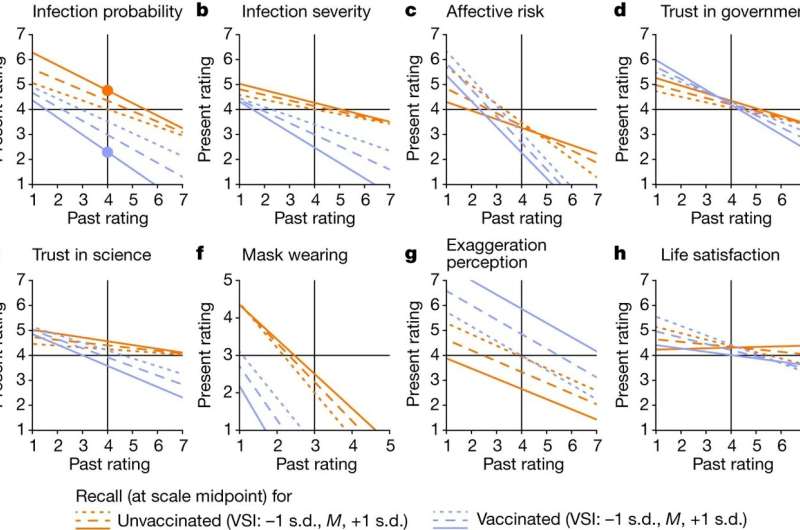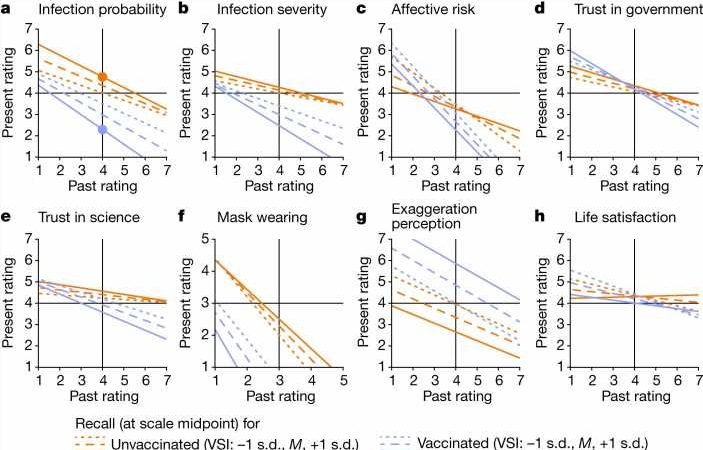
A quartet of psychologists, economists and health behaviorists from the University of Bamberg, the University of Chicago, the University of Vienna and the University of Erfurt, respectively, has found that people’s political views on vaccinations is colorizing their memories of the severity of the global pandemic.
In their paper published in the journal Nature, Philipp Sprengholz, Luca Henkel, Robert Böhm and Cornelia Betsch, describe how they conducted surveys of people regarding the pandemic and what they learned from it. The editors at Nature have posted a Research Briefing outlining the work done by the team on this effort and also an Editorial discussing possible implications of their findings.
Most health organizations around the world have deemed the global pandemic to be over despite the fact that people all over the world are still being infected by the SARS-CoV-2 virus—this is because of the degree of immunity that has been built up, both by people being infected and those who have been and continue to be vaccinated.
By all accounts, the pandemic was a major event in modern world history—in addition to the many people who were made ill or died, most economies around the world took a major hit. And because it was such a major event, many in the science community have begun to take a look back—some at its many impacts, and others looking for lessons learned.
In this new effort, the research team suggests that one of the lessons that needs to be learned is that once a pandemic is over, people will remember it differently, depending on their political views—in this case, on their views regarding vaccinations.
To learn more about how people remember the severity of the pandemic, the research team surveyed over 10,000 people living in 11 wealthy, Northern Hemisphere countries, asking them to rate their risk of infection. Some of those people living in Germany had responded to a survey conducted earlier, by the same group, asking them the same questions. On the second go-round, those people in Germany were also asked to try to remember how they had rated their risk in the first survey.
In looking at the data from the German participants, the researchers found, among other things, a trend—people who had not been vaccinated and who had strong feelings about it, tended to remember themselves ranking their risk lower than they actually had. They also found that those people from the same group who had been vaccinated tended to remember themselves ranking themselves more at risk than they actually did. Put another way, both groups were re-writing history based on their political feelings regarding vaccinations.
The researchers suggest their findings indicate people involved in looking back at the pandemic need to keep in mind that the memories of people being queried may be clouded by their own biases.
More information:
Philipp Sprengholz et al, Historical narratives about the COVID-19 pandemic are motivationally biased, Nature (2023). DOI: 10.1038/s41586-023-06674-5
Personal motivations polarize people’s memories of the COVID-19 pandemic, Nature (2023). DOI: 10.1038/d41586-023-03082-7
Journal information:
Nature
Source: Read Full Article
